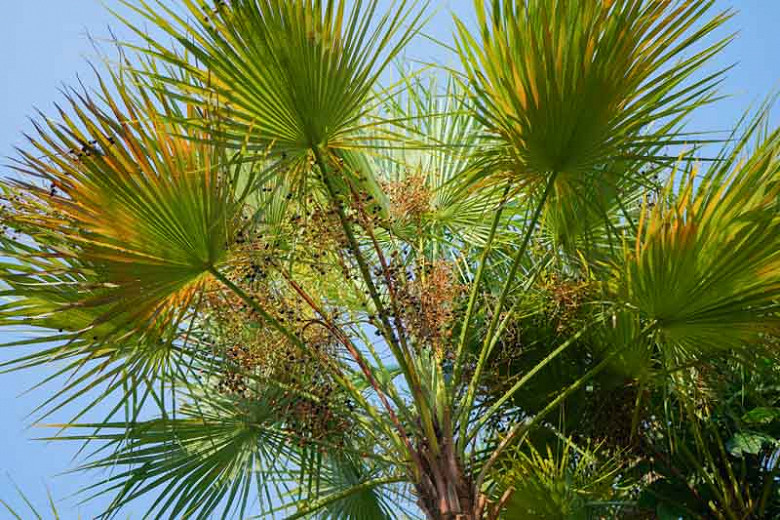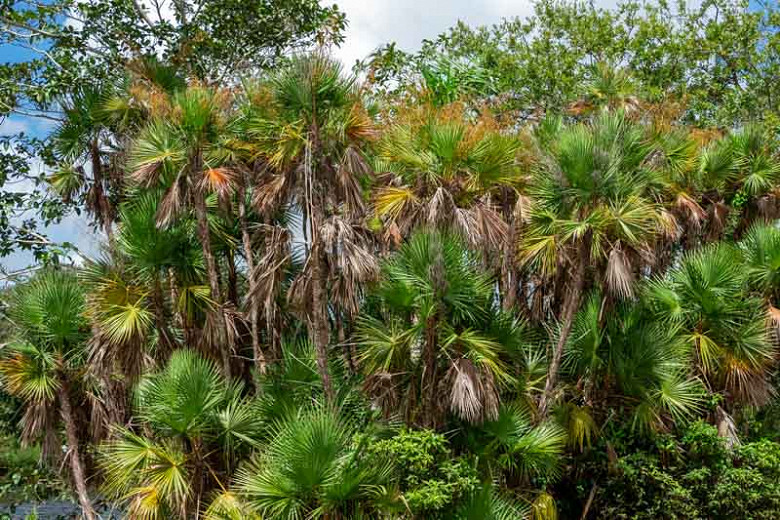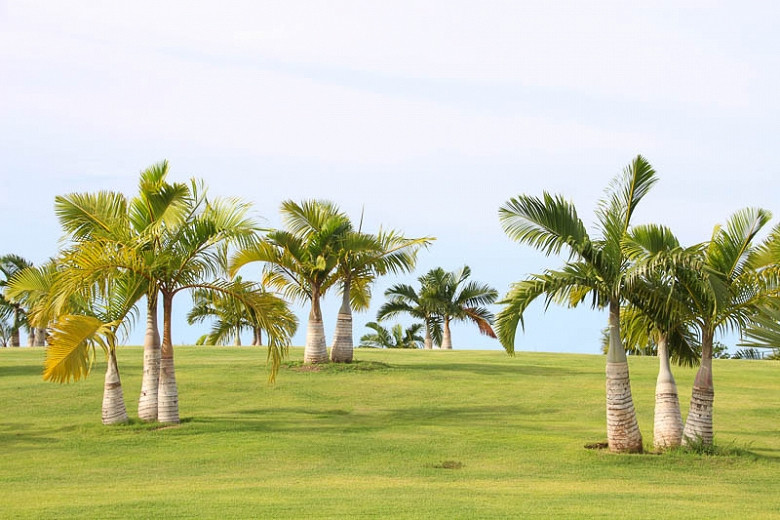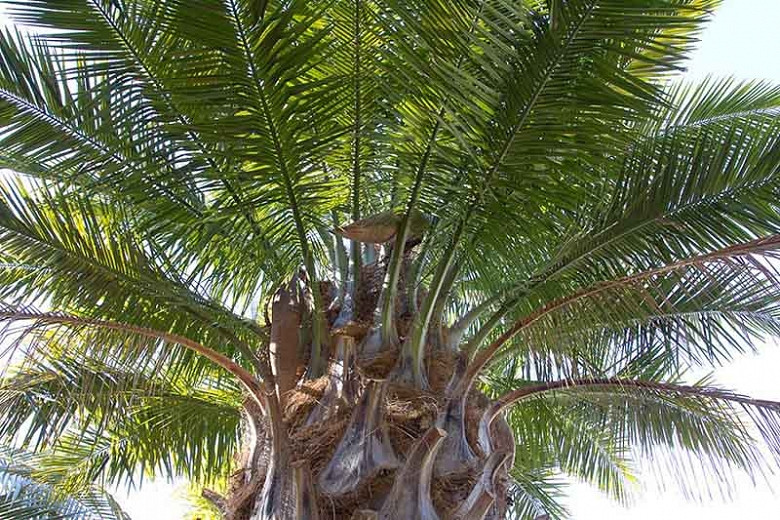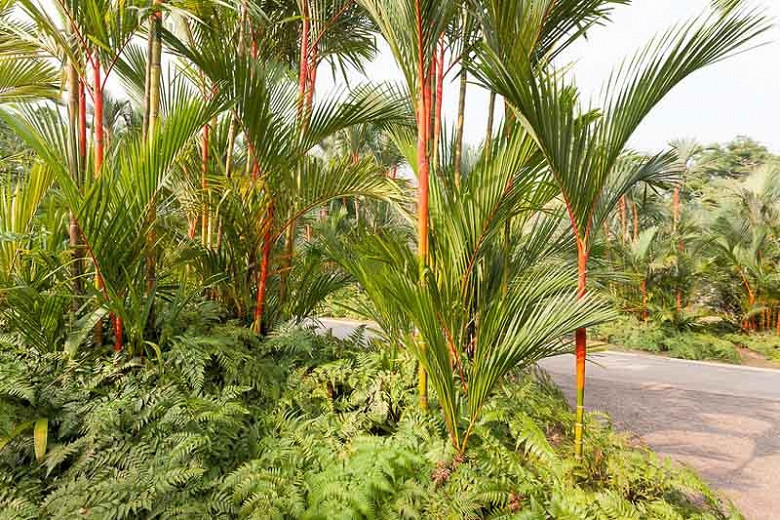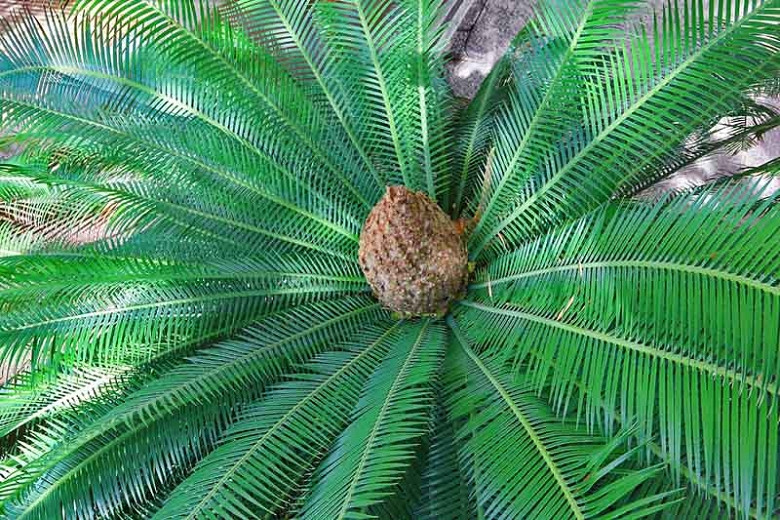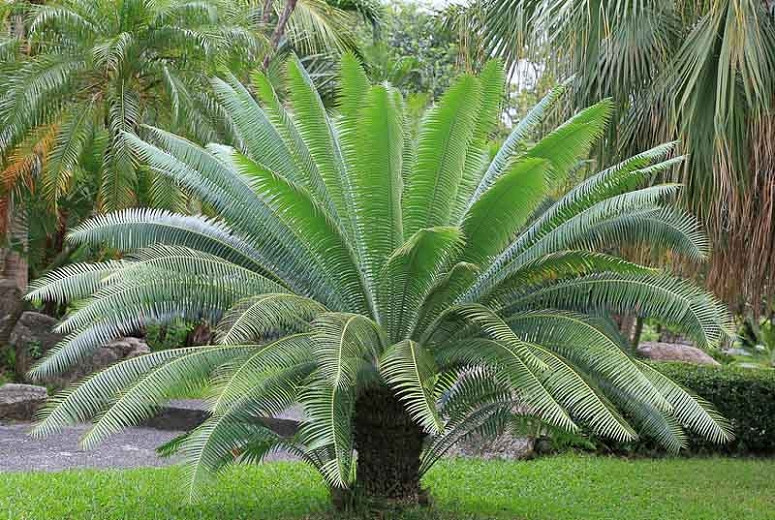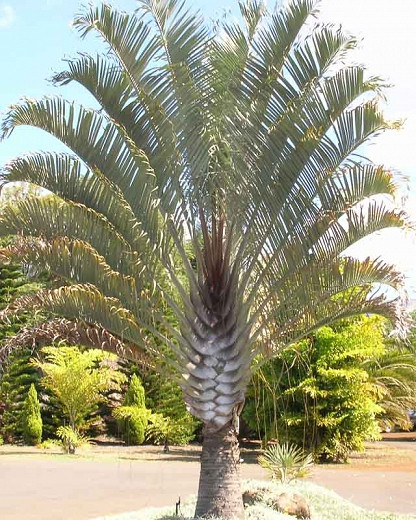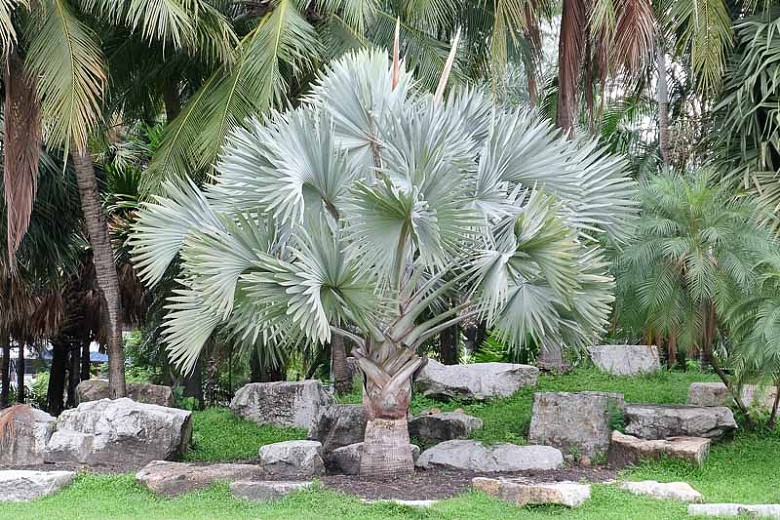Acoelorrhaphe wrightii (Paurotis Palm)
Acoelorrhaphe wrightii (Paurotis Palm) is an attractive, clump-forming, multi-stemmed, evergreen palm with a slender trunk and stiff, fan-shaped leaves. The leaves, about 2 ft. across (60 cm), are light green above and slightly silver underneath. They are attached to long spiny petioles that can reach 3 ft. in length (90 cm). The foliage can be so lush, from the ground up, as to hide the trunk. The lower fronds can be removed so that the trunks can be clearly seen. The thin, brown trunk is often covered with thick fibrous matting. In the spring, large branching and arching inflorescences, up to 3 ft. long (90 cm), usually extend beyond the leaves and contain a profusion of tiny, creamy-white, flowers. They give way to shiny, orange berries turning black at maturity. Rather slow-growing, Paurotis Palm is native to Florida, the Caribbean, and Central America, where it occurs in swamps and hammocks. It makes a beautiful specimen plant and is excellent along ponds and for providing a tropical effect in moist to wet soils.
- Grows up to 20-30 ft. tall (6-9 m) and 15-25 ft. wide (4.5-7.5 m).
- Easily grown in moist soils in full sun. This plant occurs naturally in wet places but will adapt to drier sites. Paurotis Palm does not grow well in calcareous soils. Tolerant of frequent inundation, it is moderately tolerant of salty wind, salt spray, and slightly brackish water.
- Pruning of dead leaves or flower or fruit stalks can be done at any time.
- Keep an eye out for scales and beetles.
- May suffer from manganese deficiency in calcareous soils, potassium deficiency (black spots on the oldest leaves), iron deficiency (greenish-yellow leaves). Fertilize every 3 months with a controlled release 8-2-12-4 Mg (or 8-0-12-4 Mg) plus micronutrient fertilizer.
- Propagate by seed, or by division. Seeds take about 3 months for germinating.
- Native to Florida, the Caribbean and Central America.
Requirements
| Hardiness | 10 – 11 |
|---|---|
| Plant Type | Palms – Cycads |
| Plant Family | Palms – Cycads |
| Exposure | Full Sun |
| Season of Interest | Spring (Early,Mid,Late)Summer (Early,Mid,Late)FallWinter |
| Height | 20' – 30' (6m – 9m) |
| Spread | 15' – 25' (4.5m – 7.5m) |
| Water Needs | Average, High |
| Maintenance | Low |
| Soil Type | Loam, Sand |
| Soil pH | Acid, Alkaline, Neutral |
| Soil Drainage | Moist but Well-Drained, Moisture Retentive, Poorly Drained |
| Characteristics | Showy, Evergreen |
| Native Plants | United States, Southeast, Florida |
| Tolerance | Salt, Wet Soil |
| Attracts | Birds |
